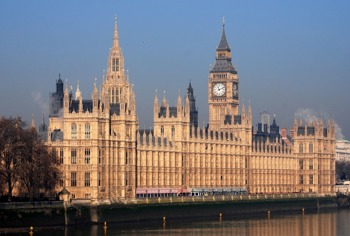Ahead of this year’s National Album Day celebrating the 1990s, new analysis reveals the era’s spread of artist success was across the entire UK, with nearly two-thirds of British studio albums that reached No.1 during the decade coming from acts from outside London.
Solo artists and bands from North West England alone made up more than one fifth of the albums by UK talent that hit No.1 on the Official Albums Chart during the decade, while there were also strong showings for artists from Yorkshire and the Humber, Scotland and Wales.
Based on Official Charts data, the research was carried out by National Album Day organisers the BPI, the representative voice for the UK’s world leading record labels and music companies, and ERA, the UK’s digital entertainment and retail association representing music retailers and digital services, in the run-up to the sixth edition of the annual event. Celebrating and promoting the art of the album, this will take place on Saturday, 14th October in association with official audio partner Bowers & Wilkins and official broadcast partner BBC Sounds.
While the 20th Century’s last decade has long been recognised as a rich period for British music across multiples genres and movements such as Britpop, what this new research reveals for the first time is the extent to which it was a truly UK-wide success story with artists from almost every nation and region topping the Official Albums Chart with new recordings. Out of the 109 new studio albums by British artists that reached No.1 during the decade, 63% of them were by acts who grew up or whose bands were formed outside London.
North West artists claimed more than a year at No.1 in total during the 90s
Appropriately the region where the decade’s biggest album emerged – (What’s The Story) Morning Glory by Oasis – played a defining role in this banner period for UK music excellence. Twenty-two of the new studio albums by UK artists that reached No.1 in the decade were by solo stars from North West England or whose bands formed there, spending collectively more than a year (63 weeks) at No.1. A dozen of these albums came from Manchester artists, including three apiece from Oasis and Simply Red (led by the 12-times platinum Stars), two each from Chemical Brothers (including Dig Your Own Hole) and Take That (including Everything Changes), plus solo albums from Gary Barlow (Open Road) and Morrissey (Vauxhall and I).
During the decade the Greater Manchester area also scored No.1 albums with Salford bands Black Grape (It’s Great When You’re Straight…Yeah) and New Order (Republic), while other chart-toppers came from North West talent including Merseyside bands Boo Radleys (Wake Up Boo!), The Christians (Colour) and The Farm (Spartacus), Wigan’s The Verve (Urban Hymns) and Chester’s Mansun (Attack Of The Grey Lantern), as well as The Charlatans, whose origins were in the West Midlands, but whose birthplace is also cited as Northwich, Cheshire where lead singer Tim Burgess grew up. Three albums by the group reached No.1 during the decade, including their debut Some Friendly.
Singer-songwriters Chris Rea from Middlesbrough (Auberge) and Sting from Wallsend (The Soul Cages) were behind two of North East England’s four No.1 LPs, but were outshone by Dudley-raised actor-turned-singer Robson Green who with his Bromley-born TV co-star Jerome Flynn claimed two No.1s, including the seven-week chart-topper Robson & Jerome.
Yorkshire and the Humber, Scotland and Wales behind multiple 1990s chart-topping stars
Like Oasis, Pulp were one of the leading faces of the Britpop movement and the Sheffield band landed the Yorkshire and the Humber with two of the region’s eight No.1 studio albums in the 90s – Different Class and This Is Hardcore – matching the achievements of Hull’s Beautiful South (Blue Is The Colour, Quench). Sheffield band Def Leppard (Adrenalize), Bailiff Bridge’s Embrace (The Good Will Out), Wakefield singer Jane McDonald (Jane McDonald) and Scarborough’s Little Angels (Jam) from the region also scored No.1s in the decade.
Further north, Scottish artists claimed seven No.1s with new studio albums between 1990 and 1999, including three from Glasgow band Texas (led by The Hush) and two each from Aberdeen singer-songwriter Annie Lennox (including her solo debut Diva) and Clydebank’s Wet Wet Wet (including Picture This).
There were five albums by Welsh acts that hit the top in the decade, two from Cardiff band Catatonia (inc. the triple-platinum International Velvet) and one apiece from Blackwood’s Manic Street Preachers (This Is My Truth Tell Me Yours), Stereophonics from the village of Cwmaman in the Cynon Valley(Performance and Cocktails) and Pontypridd’s legendary Tom Jones (Reload). Meanwhile, Ash from Downpatrick, Co. Down were the sole artists from Northern Ireland to top the Official Albums Chart, leading with their debut 1977.
How other regions fared
Robbie Williams, who was born in Stoke-on-Trent, provided two of West Midlands’ four No.1 albums, starting with his solo debut Life Thru A Lens, while the region’s chart-toppers also included albums by Solihull band Ocean Colour Scene (Marchin’ Already) and veteran Birmingham group UB40 (Promises and Lies). Although the East Midlands did not score any No.1 studio albums during the decade, there were some notable successes, including by Leicester artists Cornershop and Mark Morrison who both topped the Official Singles Chart and had BRIT Certified Gold-selling albums.
South East England was the only other region besides the North West outside London to have claimed at least 10 No.1 albums across the decade with its eclectic mix including releases by Oxford bands Radiohead (OK Computer) and Supergrass (I Should Coco), The Cure who formed in Crawley (Wish), Brighton’s The Levellers (Zeitgeist) and Woking hero Paul Weller (Stanley Road). The South West’s four No.1s came from Bradford-upon-Avon band Jesus Jones (Doubt), Bristol’s Massive Attack (Mezzanine), Michael Ball who grew up in Dartmoor (Michael Ball) and Glastonbury’s Reef (Glow).
Artists from East of England led the Official Albums Chart five times, with Basildon’s Depeche Mode (including Songs of Faith and Devotion) and The Prodigy from Braintree both hitting the top twice, the latter for the first time with the six-week chart-topper The Fat Of The Land.
Blur’s unrivalled four No.1s during the decade headed eclectic London showing
Blur were the only artists to score more than three studio No.1 albums during the 1990s, making their four chart-toppers (including Parklife) the biggest contributors to the 41 titles by London bands and solo performers that topped the chart over the course of the decade. Suede came closest to matching them with the first three of their four studio albums released in the decade reaching No.1, including their self-titled debut, while other artists from the capital with multiple No.1s were Erasure (including Chorus), George Michael (including Older), Jamiroquai (led by Emergency On Planet Earth), Phil Collins (starting with the decade’s first No.1 …But Seriously), Queen (including Innuendo), Seal (beginning with his self-titled debut) and Spice Girls (including the 15-week chart-topper Spice).
Dr. Jo Twist OBE, Chief Executive BPI, and Kim Bayley, Chief Executive ERA, the digital entertainment and retail association, the organisations behind National Album Day, said jointly: “The 1990s have long been celebrated as a truly golden era for British music, but our new research reveals the extent to which this success came down to the chart-topping talents of artists drawn from across the entire UK. This pattern mirrors the story of today when a new generation of artists both musically and geographically as diverse is now helping to shape what we hope will be the next great era of British music.”
Notes to Editors
Total number of No.1 studio albums in 1990s by artists from each UK nation and region
1. London 41* (includes Blur, George Michael, Suede)
2. North West 22 (includes The Charlatans, Oasis, Take That)
3. South East 10 (includes Fatboy Slim, Radiohead, Supergrass)
4. Yorkshire and the Humber 8 (includes Beautiful South, Def Leppard, Pulp)
5. Scotland 7 (includes Annie Lennox, Texas, Wet Wet Wet)
6=. East of England 5 (includes Depeche Mode, The Prodigy)
6.= Wales 5 (includes Catatonia, Manic Street Preachers)
8.= South West 4 (including Jesus Jones, Massive Attack, Reef)
8.= West Midlands 4 (includes Ocean Colour Scene, Robbie Williams)
10. North East 4* (includes Chris Rea, Sting)
11. Northern Ireland 1 (Ash)
*includes two Robson & Jerome albums shared by London and North East
Source: BPI/ERA based on Official Charts data
Here is a link to all the albums which reached No.1 on the Official Albums Chart during the 1990s.




